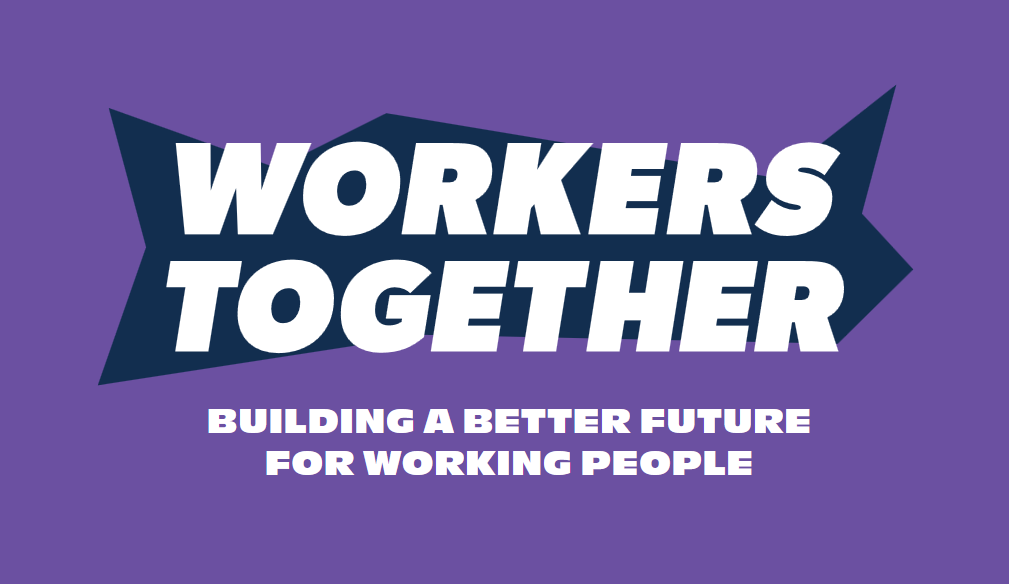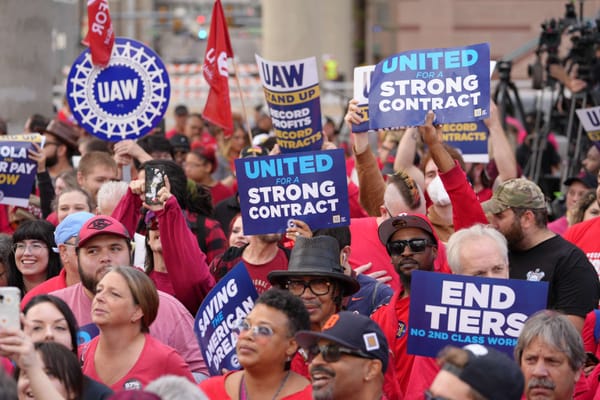
It’s only a couple more days until the election. Like many others, I’ll be glad when it’s over and we can leave the polls and ‘debates’ aside and hopefully get back to the real work of fighting for the interests of working people.
Despite Prime Minister Justin Trudeau’s calculated power grab, polls indicate that this snap election looks set to result in a Parliament not dissimilar to the previous one. The Conservatives have improved their national numbers, but not enough to edge out the Liberals in the seat count. The NDP, although initially pulling ahead and still likely to improve on their lacklustre performance in the prior election, has dipped back down slightly. So-called ‘strategic voters’ are surely veering back to the Liberals out of fear of a Conservative upswing. Remember how 2015 was going to be the last election under first-past-the-post?
And so, another Liberal minority government is projected to be in the offing. The whole Election 44 affair has, predictably, proven to be a colossal waste of time, energy and money. No progressive policy on which the Liberals have been campaigning would have been blocked in the last Parliament. They simply wanted the majority mandate to water down or abandon what were already tepid responses to the interlocking crises of COVID-19, climate change and rampant economic inequality.
But enough about the Liberals. We’ll have plenty to complain about and fight against for the duration of the next government, I’m sure.
This week, I wanted to return to the Conservative Party’s rebranding as a party of workers.
In keeping with their right populist flirtations since party leader Erin O’Toole’s “Labour Day video” last year, the Conservative Party has proposed a suite of supposedly pro-worker policies on which they are now campaigning.
O’Toole’s ‘pivot to the working class’ has garnered much media commentary over the past several weeks. My colleague Rawan Abdelbaki wrote a particularly scathing critique of the Conservative “right-wing populist playbook of economic nationalism, fused to an agenda of corporate tax cuts, unfair trade deals, and militarism” in the Breach.
On the other hand, Justin Ling, writing in Maclean’s, dubbed O’Toole a “socialist crusader” and praised his “pro-worker” policies in contrast to the “anemic New Democrat platform.” Ling’s analysis of the Conservative platform is mostly laughable, but it’s nevertheless instructive to think through some of what supposedly stands out as “pro-worker” to Ling and others.
As I wrote in a previous newsletter, the left should take Conservative overtures to workers seriously, if indeed their strategy is to undermine unions and appeal directly to disaffected workers, particularly those in the private sector harmed by bad trade deals, deindustrialization, and job loss.
When one goes beyond the headlines and soundbites, however, these ‘worker-friendly’ Conservative platform items are mostly smoke and mirrors, unsurprisingly.
Let’s start with the Conservative plans for Employment Insurance (EI) and the gig economy.
The Conservative plan for unemployment insurance involves something they are referring to as “super-EI.” The basic idea here is twofold: the unemployment rate would be used to define when a particular region is in a recession, and then benefit levels would go up to 75 per cent of previous earnings, instead of the current 55 per cent. Note: no mention is made of a “cap.” The maximum weekly benefit is currently $595.
The Tory EI plan strikes me as confused in a number of ways. First, the Party’s platform says it will consider a 0.5 per cent increase in unemployment to indicate a recession, as opposed to a contraction in GDP. Yet they don’t indicate what they consider to be the base or “normal” rate of unemployment beyond which this half a percent rise means a recession.
We should recall that the broad macroeconomic shift toward neoliberalism has involved a protracted battle over the definition and characterization of unemployment. Over the past decades, governments around the world have largely abandoned any commitment to full employment policy and have either embraced or accepted that there is some “natural rate of unemployment.” To use government spending to push employment levels beyond this would be inflationary, or so the argument goes. The technical — and entirely awful — term for this is the “non-accelerating inflation rate of unemployment” or “NAIRU.” The inability to effectively measure the NAIRU — or whether it really exists — doesn’t seem to trouble many policymakers.
Without knowing what the Conservatives consider ‘acceptable unemployment’ to be, it doesn’t mean much to know that a half a percent increase triggers “super-EI.”
Second, if 75 per cent of previous earnings is an appropriate wage replacement rate during a recession, why is it not necessary at all times? It makes little difference to any particular unemployed worker or their family how many other people are simultaneously unemployed. Although we shouldn’t expect Conservatives to be concerned with matters of justice, the left should be. There’s no principled justification for fluctuating wage replacement rates. Every unemployed worker deserves an adequate benefit.
Last, the Conservatives are, of course, silent on how they and the Liberals have completely undermined EI since the ’90s. Ling even concludes: “Worth noting, however, that O’Toole is not promising any obvious increase in EI contribution rates, even as he promises this [“super-EI”] and various other increases in payouts, raising the possibility that these measures could plunder the fund.”
No mention is made by Ling that Conservative and Liberal governments previously ended federal government contributions to EI, and then indeed “plundered” the fund, effectively stealing workers’ money and using it to pay down deficits.
When it comes to gig economy workers, O’Toole proposes extending access to EI and other benefits through a portable “Employee Savings Account.” However, as Press Progress reported, this plan was “carbon copied” from Uber’s Flexible Work+ scheme — the tech giant’s attempt to revise provincial legislation in Ontario in order to continue misclassifying app-based workers as independent contractors. Dan Mader, a former Uber lobbyist, is O’Toole’s director of policy and played a “leading role” in drafting the Conservative Party’s platform.
The plan for gig workers is no plan at all. It would simply carve them out of minimum labour standards legislation and continue to deny them employment status while granting a few miserly perks well below what workers would receive as legal employees.
O’Toole is also proposing a plan to add worker representatives to corporate boards — his ostensible commitment to ‘workplace democracy.’ The announcement indicates that federally-regulated firms with more than 1,000 employees or annual revenues of $100 million or greater would need to reserve an unspecified number of executive board seats for worker representatives. This is similar to what in Europe is known as “codetermination,” a form of corporatist labour-management relations wherein workers are enlisted in advancing the interests of the firm.
Sometimes this type of “worker voice” can apply progressive pressure at the executive level of private firms. But it’s also important to acknowledge that many European unions who have operated under this system for decades have major criticisms of it. For one, how worker representatives are elected is an open question, as is their relationship with their unions, if they are in an organized workplace.
Codetermination schemes can also wind up being a way for companies to undermine unions and implement their corporate priorities with the rubber stamp of largely powerless worker board representatives rather than resolving workplace issues through collective bargaining.
If implemented, this Conservative plan would apply to large federally-regulated firms, such as Air Canada, as well as crown corporations, such as Canada Post. Conservative and Liberal governments have legislated union members at these very same firms back-to-work on multiple occasions after workers exercised their Charter-protected right to strike.
As economist Jim Stanford aptly pointed out on Twitter, the official Conservative Party policy book still commits it to American-style “right-to-work” laws. These wildly misnamed laws allow individual workers to opt out of paying union dues but still require unions to represent everyone in a workplace regardless, effectively undermining the financial stability of unions.
A vague and minor ‘codetermination’ scheme in the federal jurisdiction is not a plan for “workplace democracy.” Worse, it could very well be an attempt to further the Conservatives’ long history of anti-unionism.
On the whole, the Conservatives’ worker and union proposals are mostly a grab-bag of half-baked ideas, much of them likely just rhetoric. Taken together, their platform would do next to nothing to help workers, if much of it ever saw the light of day under a Conservative federal government, anyhow.
O’Toole might have gotten some media hype over the past couple of weeks for posing as a right-populist friend of the working class. But workers get nothing from Conservatives — never have, never will.







